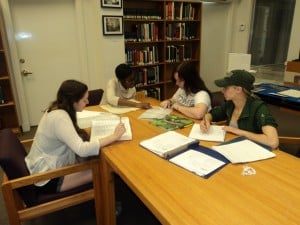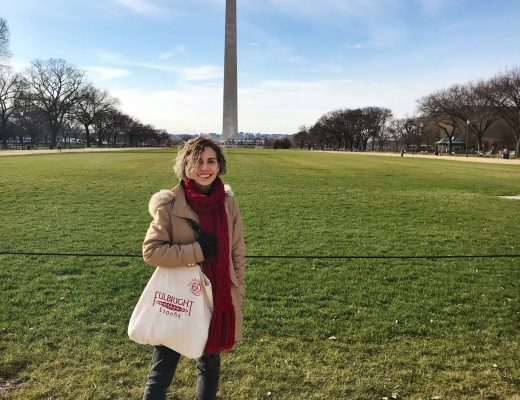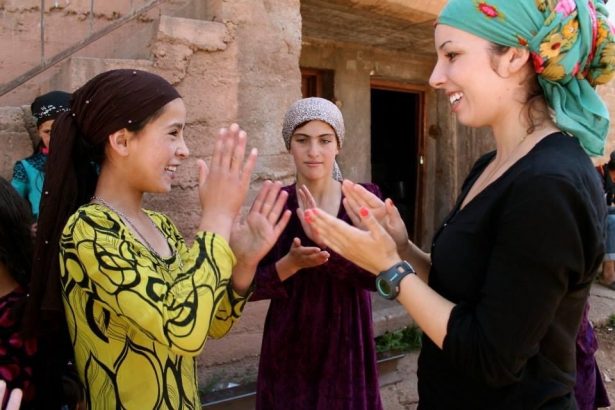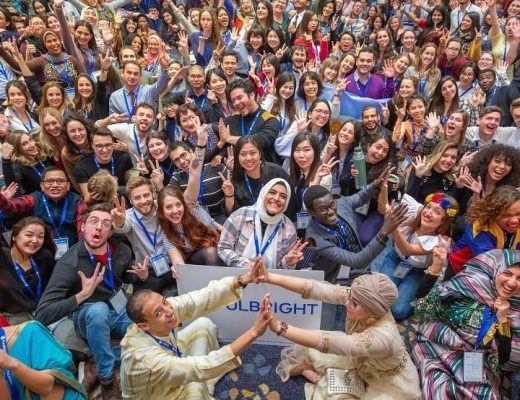
Olanike Lawore, 2013-2014, Fulbright Foreign Language Teaching Assistant from Nigeria (second from left), working closely with her students at Tulane University
My name is Olanike Lawore. I am from Nigeria and was a Fulbright Foreign Language Teaching Assistant (FLTA) at Tulane University, New Orleans between 2013 and 2014. My Fulbright experience was a life-changing one, as it expanded my academic orientation in many ways and provided me with an opportunity to explore and understand the American graduate school world while thoroughly honing my teaching skills.
My Fulbright experience started with an orientation held at Syracuse University, where my Fulbright colleagues from other parts of the world and I were provided with information on what to expect in a typical U.S. university, how to adapt to our host communities and how to carry out our FLTA responsibilities successfully at our respective host campuses. The orientation was quite useful and helped us to prepare for the tasks ahead.
Arriving at my host institution, I commenced my teaching duties while also taking graduate level courses in linguistics and literature, an experience that was challenging but invaluable. Consequently, my multi-tasking skills grew by leaps and bounds.
Besides this, my Fulbright experience afforded me with an opportunity to observe Louisiana’s culture through the lens of New Orleans, my host community and a melting pot with an interesting, rich cultural heritage. I was struck at how similar yet different Louisiana’s culture was from my Nigerian culture. This experience was simultaneously enlightening and entertaining, and my worldview broadened as a result. I realized that the United States overall is a sort of melting pot of diverse cultures and nationalities. Learning some Creole through a Linguistics course helped me to better understand the concept of language contact and Louisana’s culture.
I also found that most of the people who I met were generally polite and accommodating.
It was here that the meaning of the phrase “the citizen of the world” gained a deeper meaning for me. I enrolled in other courses to help me gain insights into my host country and the bilateral relationship it has with Nigeria. Some of the courses I took included South American Literature and Diasporan Yoruba. These courses dealt with thought- provoking subjects that inspired papers I later wrote on the subjects of cosmopolitanism, diaspora and syncretism. In all, my Fulbright experience was a very stimulating one that expanded my worldview and cultural orientation.
Academically, I admired how hardworking both Tulane’s faculty and students were, and was impressed by their collaborative work ethics, an experience from which I benefited immensely. Before my Fulbright grant, I had always appreciated hard work, but my Fulbright greatly strengthened my work ethic. Furthermore, my planning skills were sharpened. I realized that to succeed at teaching, studying and research tasks, I had to do a lot of scheduling. This has continued to help me even after my Fulbright grant. I can honestly say that as a result of this unique experience, I have not remained the same, in the very best way.




No Comments